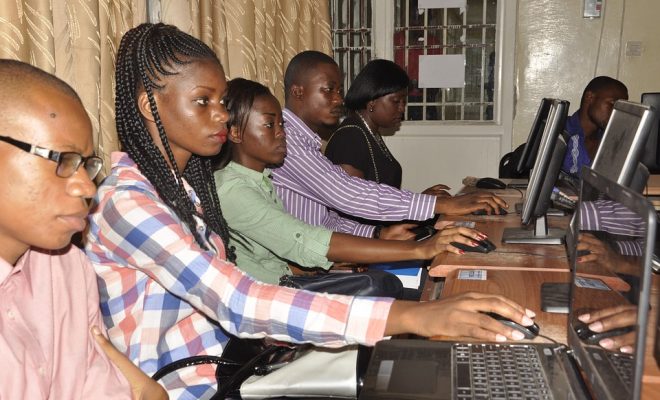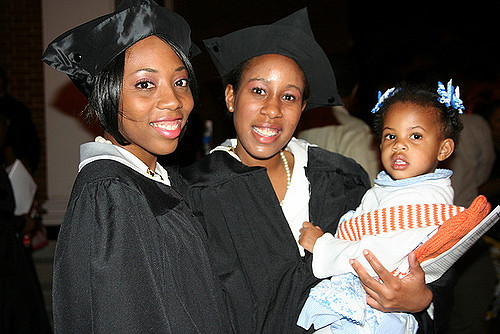Diverse Conversations: What it is Like Being the First Female College President
For most of American history, the college/university presidency could be described as an “all boys club,” however, over the last 3 decades this has changed. Over this time period, the number of female college/university presidents has steadily increased, and this trend shows no signs of slowing down anytime soon. Recently, I sat down with Dr. Angela Franklin, the first female and African American president of Des Moines University, to talk about here experiences. Without further ado, let’s begin the interview.
Q: What are some of the challenges that you have had to face as the first female and African American president?
A: I would begin by citing the obvious challenges of any new leader, regardless of gender or race. Being a newcomer in any environment can have interesting challenges given longstanding cultural dynamics. The difficulty comes from trying to establish rapport, build consensus, create vision, and set strategic priorities, all while trying to assess and learn a new culture. I believe I was selected for the job based on a genuine appreciation for my past experiences and skills, yet, you really have no way of knowing how those experiences will translate or be received in a new environment until you get there. I had to fall back on some basic principles of leadership which fall into the category of servant leadership or even more basically…. following the Golden Rule. So, there is a curiosity of new leadership that sometimes gets in the way of being able to mobilize a new team toward a collective vision. The curiosity typically stems from stereotypical thinking which comes from each individuals past experiences. And, like most institutions, there had been experiences with previous Presidents that colored expectations and impressions of me.
So, I came to a place which had some preconceived notions of the role of the President which did not necessarily fit with my experiences. Being the First Woman President as well as the first African American, added elements which made for some interesting dynamics. Although subtle and on the surface in most instances these factors clearly had an impact underneath it all.
There is actually some research from an organization called Catalyst that suggests that female leaders are scrutinized in a different way than males and I believe there is clearly a double standard. Catalyst has found that often there is an impression of a female leader of being either “too soft or too tough” but never “just right”. There is also an impression of either being competent but not necessarily well liked, or being liked but not necessarily being considered competent. My hope is to change this dichotomy and encourage women to just “be” who they are with an understanding that no matter how much they may try, they may or may not be perceived as they really are. So, I find myself having to be cognizant of some of the stereotypical thinking, acknowledge the double standard, respect the opinions and perceptions others may have, while trying to stay true to who I really am.
Through it all, I believe I have gained the respect of my campus community, and continue to work to demonstrate that a Female President can be “just right”, “competent”, AND liked! That is my challenge!
Q: What has been your proudest accomplishment in your time at Des Moines University?
A: Whereas I am pleased that in my first year I was able to mobilize a campus wide effort to refresh the institutional mission statement, clarify core values, and establish a collective vision for the future with strategic goals identified, I believe the proudest accomplishment thus far comes from a concerted effort made to re-locate La Clinica de la Esperanza to the Des Moines University Campus. This clinic began as one of the Free Clinics of Iowa and was a joint venture between Des Moines University and Unity Point Health System. During my first year, I learned that this partnership was primarily in name only and although housed in one of our properties on the south side of town, Des Moines University had not necessarily been actively engaged. With the support of my Board of Trustees, we moved the Clinic from the old clinic building, renovated space on our campus and they now reside on our main campus. This gives us the opportunity now to realize a more engaged partnership with Unity Point and also expand opportunities for training of our students on campus. In addition, this partnership was the “springboard” to allow us to expand other DMU clinic services to better realize our mission of providing quality care to the surrounding community.
Q: What advice would you give to a woman who has recently been appointed to her first college/university presidency?
A: The first thing any new president should do is to build relationships with the internal and external communities. Being a good listener and being approachable are also two additional bits of advice. I worked to understand the culture (internal and external) and began the process of building rapport across multiple constituent groups. It sometimes felt as if I needed to be in three places at one time, but I worked hard to have a positive presence both within the campus community as well as outside and around the country. This meant agreeing to speak at various local, civic organizations, being keynote speaker at various conferences, and serving on local boards and councils. Being immersed in the community was important in marketing my institution but also raising the awareness of the CHANGE which was happening at DMU!
The relationship with my Board of Trustees as well as my Executive Leadership Team was also essential. Getting the right team was an essential first step! Not making any hasty changes was an important lesson to learn as well. Whereas you sometimes hear that it is important to bring in your own team, I think it is more important to go slowly, assess, give people an opportunity, then make changes only when warranted. The blending of the old and new has merit and the synergies of fresh ideas with the appreciation of the history makes for a great dynamic.
Q: How about a woman who aspires to become a college/university president one day?
A: I would encourage any woman who aspires to become a President to Dream Big. The sky is the limit. We have “cracked” the glass ceiling for women in higher education and the Presidency in particular but there still aren’t enough of us. There is strength in numbers. According to the American Council on Education, the numbers of women college presidents has actually grown slightly from 23 % in 2006 to 26% in 2011. However, the proportion of presidents who are racial or ethnic minorities during that same timeframe actually declined slightly from 14% to 13%. And when Minority serving institutions are excluded, only 9 percent of presidents belong to a racial ethnic minority group which represents no change from 2006.
So, there is still more work to be done in preparing the next generation of Leaders. The changing demographics in our population plus the focus on diversity and inclusivity in higher education warrants a concerted effort to develop a diverse group of future leaders.
There are several leadership development programs out there such as the American Council on Education Fellows program, which by design, help prepare new leaders with a focus on knowledge and skill development as well as mentorship. Not everyone can afford to participate in these programs or would necessarily be supported to pursue them. Therefore, I think the onus is on the current Women Presidents to reach back and help others along the way.
Q: What are you most excited about as you look forward to the coming year as Des Moines University’s president?
A: I am excited about the changing dynamic on campus which has evolved over the last two years in encouraging open, honest communication, and working collaboratively as one university.
I am most excited about the new partnerships we had developed at DMU which includes the DMU Clinical Collaborative, a group of leaders representing all hospital systems within the state and surrounding territory who have agreed to come together to support the clinical training of our students.
I also am excited about prospects to engage with fellow academic institutions to explore new collaborations for interprofessional education and new degree programs.
In addition, we are expanding our clinical services to impact our community with a focus on prevention and wellness.
Q: Anything else that you would like to share with us?
A: Des Moines University is a 115 year old institution with a rich tradition of excellence in the health sciences. I am honored to serve as we continue to raise the bar and provide an exceptional educational experience for the next generation of health professionals.
That concludes my interview with President Angela Franklin. I would like to thank her for consenting to this interview and for her contributions to the field of higher education.






